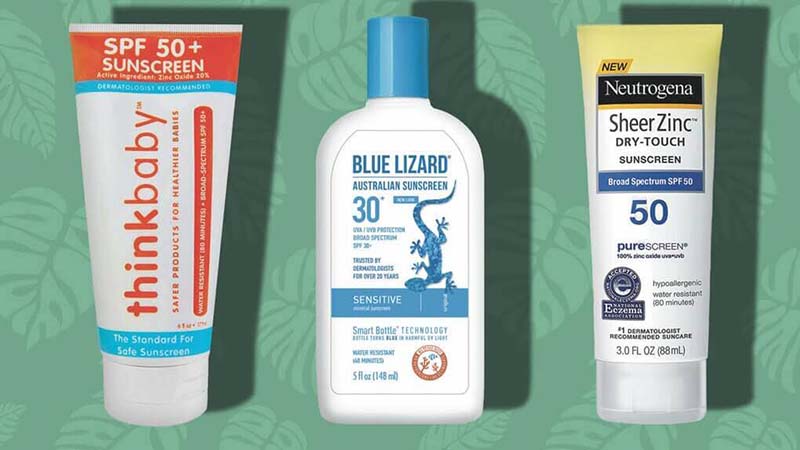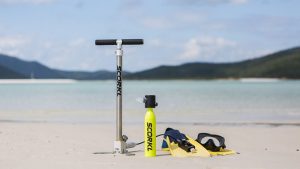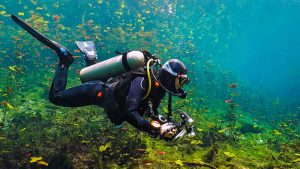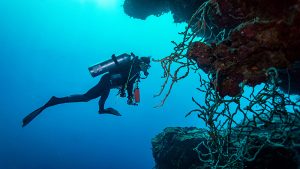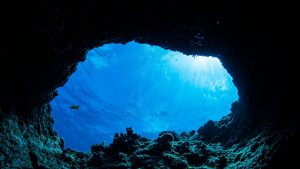Snorkeling and indeed any other surface water sport leaves your body exposed to the sun. That is why you need the best sunscreen. One of the most revered sunscreen brands out here is Neutrogena. But is Neutrogena sunscreen reef safe?
To the question of whether Neutrogena is a reef safe sunscreen, the answer is yes and no. Some of their sunscreen such as the Neutrogena Sheer Zinc Dry Touch sunscreen is reef safe. However, some, such as the Neutrogena Ultra Sheer Dry Touch sunscreen, are not reef safe. When you buy any sunscreen online, read the list of ingredients keenly. Only the ingredients will show you whether you have a reef safe sunscreen.
Why you need reef safe sunscreen for snorkeling
The most important reason why you need sunscreen for snorkeling is to protect you from the harmful UV rays of the sun. When you lie down on the warm sand after snorkeling to soak up some sun, the worry of skin cancer is not too far from your mind.
That is why when you are preparing to go snorkeling, kayaking or sailing in summer, one of the first things to go into your dive travel bag is sunscreen for snorkeling.
Definitely as a snorkeling enthusiast, you care about the oceans, and the life that they support.
That is why today, the search for the best sunscreen for snorkeling has gone beyond what is good for humans. We now must look for the best reef-safe sunscreen.
Just like we were skeptical at first when doctors told us that sitting for long hours is the new smoking, so are many people when they hear that sunscreen damages reefs!
Thus, today, we not only consider the best skin safe sunscreen for snorkeling, but the best reef safe sunscreen as well.
Buying the best reef safe sunscreen could be as simple as picking the best one that you come across. You could just buy reef safe sunscreen on Amazon.com.
However, there are so many of them, and they all claim to be the best. Thus, you have to do some research, if you indeed want to have the best.
Just as it is with buying a scuba diving tank, you want to be sure that you have the best sunscreen. That way, when you are done snorkeling in Clearwater Florida, you will feel happy that at least, you have done something for Mother Nature.
Why Reef Safe Sunscreen Matters – Coral Bleaching
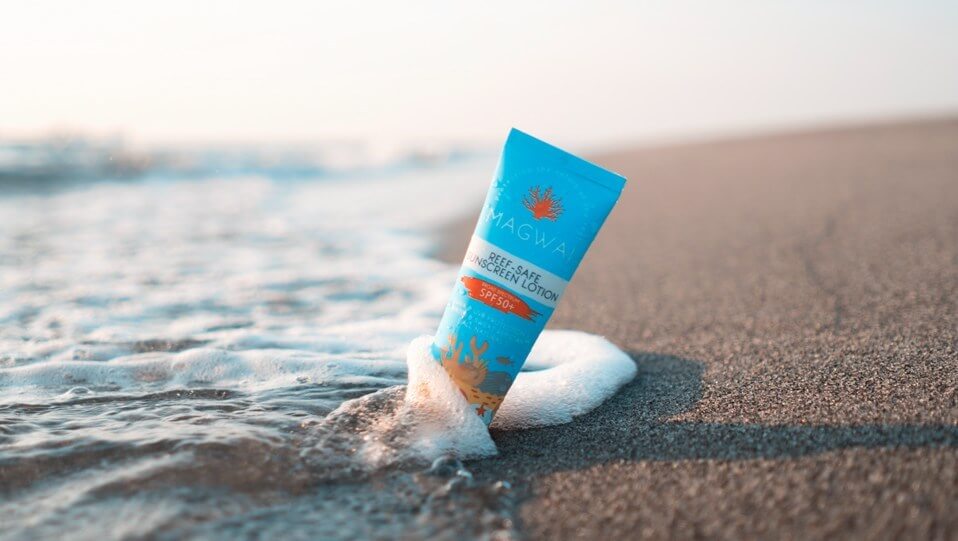
The reason why using a reef safe sunscreen matters so much is because it can prevent coral bleaching.
Ok, bigger phenomena like global warming and large-scale ocean pollution cause the biggest coral reef deaths. When there is too much warmth in the ocean, the coral reefs start bleaching.
However, we all have to do our small part to leave the ocean a better place than we found it. What we mean by this is that if we all desisted from using sunscreen that has compounds that can cause coral bleaching, we would do the ocean a lot of good.
But first …
What is coral bleaching?
Just as the word bleaching means to lose color, when coral bleaching happens the coral reef loses the algae that lives inside it. The death of these algae leaves a mere white skeleton of a reef that cannot support life.
When you put on your snorkeling gear and hit the water, you can see just how attractive the coral reef is. There is a good reason for that.
The algae called zooxanthellae is found inside the corals. However, it is expelled due to pollution and too much warmth in the water. The coral reefs start losing their exuberance and the life that depends on them.
This algae is food to a lot of marine life. Thus, when it is expelled from the coral reef, all the marine life that was depending on that coral reef for food disappears. The animals that used to feed on the small animals the fed on the algae also disappear.
And so the next time you go to the best white sand beaches in Florida with your family, there will be nothing to see when you snorkel.
However, there is some good news. When the ocean regains its normal status in temperature and cleanliness, the algae starts growing back. It is important that the coral reef is not stressed in any way because that causes it to repel the algae.
Unfortunately, some of the sunscreen that we wear has compounds that cause the coral reef to be stressed. This is avoidable, if we could all embark on a campaign to keep the ocean as clean as possible.
So next time you go riding on your kayak, mind what you toss in the ocean. It could cause serious effects.
Why are some sunscreens bad for snorkeling?
Some sunscreens for snorkeling are bad because they contain ingredients that cause coral bleaching.
These ingredients are parabens, octinoxate and oxybenzone. Now, with more than 15,000 tons of sunscreen finding their way to the ocean annually, you can see why these products are among the major contributors of reef bleaching.
These are banned chemicals anyway, but what is banned in the Americas and Europe could still be on sale somewhere else. Now, since the ocean has no boundaries, pollution can travel a long way.
Many products still contain these banned ingredients. And most people certainly do not care. You see, the ingredients are not harmful to them, they are harmful to the coral reef. Besides, if you could be honest, when did you last read the label of the sunscreen that you bought?
The good thing is that the big brands in the sunscreen industry are making products that are reef safe. Just a bit of research should be able to show you the best products for snorkeling, surfing, and even stand up paddle boarding.
Is Neutrogena sunscreen reef safe?
Perhaps you are a Neutrogena enthusiast, and you have been using their products for a long time. And indeed, they do have some awesome products.
However, what is awesome for you may not be awesome for the ocean, the coral reefs especially.
Here are some Neutrogena sunscreens that are very popular with people:
- Neutrogena Sport Face Oil Sunscreen Lotion with broad spectrum SPF
- Neutrogena Clear Face Liquid Lotion sunscreen
- Healthy Defense Sunscreen Lotion
- Ultra Sheer Dry Touch Sunscreen Lotion
- Neutrogena Sheer Zinc Oxide Dry Sunscreen lotion
Of course, you can buy any Neutrogena sunscreen on Amazon.com, where you can also read several reviews left by other users. That way, you will not be buying your sunscreen blindly.
Read the ingredients of your Neutrogena Sunscreen
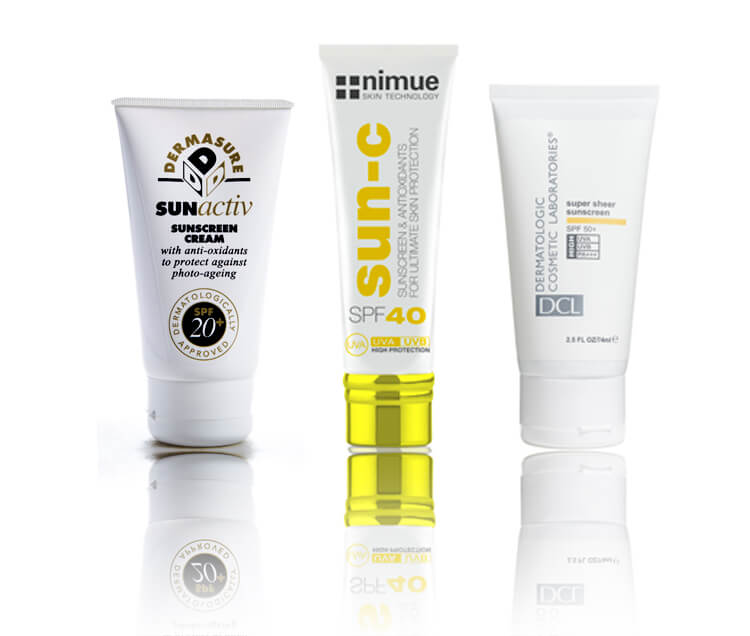
Well, now that we know the INGREDIENTS that a reef safe sunscreen for snorkeling MUST NOT HAVE, you can read the label of your favorite Neutrogena sunscreen and see whether it contains parabens, octinoxate or oxybenzone.
If it does not, it is safe for Mother Ocean, and you can be definitely sure that it will be safe for you too.
But Neutrogena is a brand name, and it has many sunscreens under it. Thus, when you are taking your baby out to swim, you can find a good sunscreen for him or her under this brand name.
As you also worry about the status of the coral reefs, also remember that sunscreen should protect you from sunburn. This is the main cause of skin cancer. As you go snorkeling, swimming or even scuba diving, you want to make sure that the exposed parts of your body are covered with good sunscreen.
Oxybenzone and octinoxate are not the only ingredients that you have to worry about. There are others.
If you see mineral oil on the label of the sunscreen, avoid it because the mineral oil that they have used is a petrolatum. Its main challenge is that it does not biodegrade as fast as good mineral oil should.
Another thing that you should avoid is any sunscreen product that contains Titanium dioxide. This mineral is not biodegradable. When it comes into contact with seawater that is warm, it forms another dangerous compound – hydrogen peroxide which can kill marine life.
Neutrogena sunscreens that are reef safe
It is a fact that the Neutrogena brand name has some of the sunscreens that you can find in the market. However, I am afraid that not all are good for snorkeling. Thus, if you do not want to be denied entry into the park, read the label of the ingredients and see whether it has any harmful compound. Of course, if you do not intend to get in the water, you can wear any sunscreen for relaxing on the beach.
One of the Neutrogena sunscreens that could be reef safe is the Neutrogena Sheer Zinc Dry Touch sunscreen. It is made with naturally extracted zinc, and it does not contain avobenzone, oxybenzone or octinoxate. Thus, we can conclude that it is safe.
You can check out this sunscreen on Amazon.com. You will find a full list of its ingredients.
Some Neutrogena sunscreens are not reef safe
All the same, there are Neutrogena sunscreens that may not be reef safe, after all. However, this could be because they are not meant to be used for snorkeling. Thus, you cannot really take it against them.
Some you can use for swimming because there are no coral reefs in swimming pools. In any case, it is recommended that you wear sunscreen after you get out of the water.
The Neutrogena Ultra Sheer Dry Touch sunscreen lotion that you can buy on Amazon.com contains tens of ingredients.
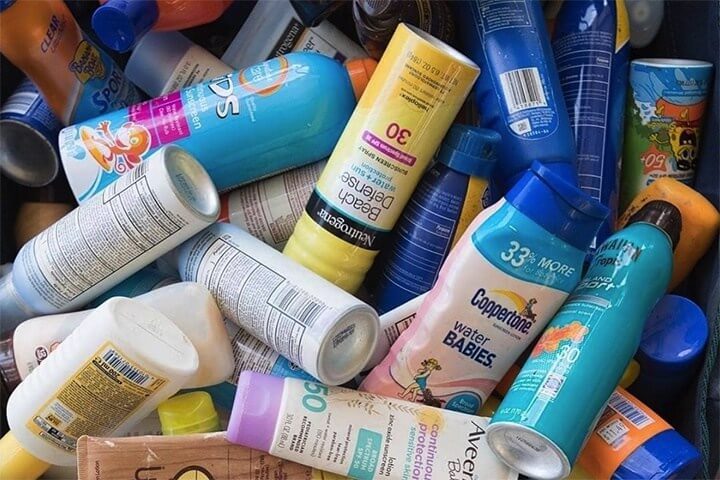
It has a broad spectrum SPF of more than 15. This sunscreen really does protect you from the UV rays of the sun.
However, it contains 3% avobenzone, which is not good for coral reefs. Other ingredients that you may find in this product that are not coral-reef safe include Homosalate, Octisalate, Octocrylene and many others.
The fact of the matter is this… even if a sunscreen is advertised as reef safe, you will be very surprised to find that it is not.
Thus, whether you are a Neutrogena sunscreen enthusiast or not, do not buy any of their products blindly! Read the ingredients list. Shut out the marketing gimmicks. If you have been enjoying snorkeling with the fish and other marine life, you would like to preserve the same ecosystem for other people in future.
The only way to do that is to find a product that does not contain the ingredients that we have been mentioning here.
Conclusion
Is Neutrogena sunscreen reef safe? Well, as I have reiterated in this article, read the ingredients list of your sunscreen and see whether there are any banned ingredients. Do not trust the marketing language used because marketers will say anything to get that product from the shelf. They may say that a product is reef safe, while what they actually mean is that it is safer as compared to others. Read through the marketing noise and you will definitely find a product that is reef safe.

